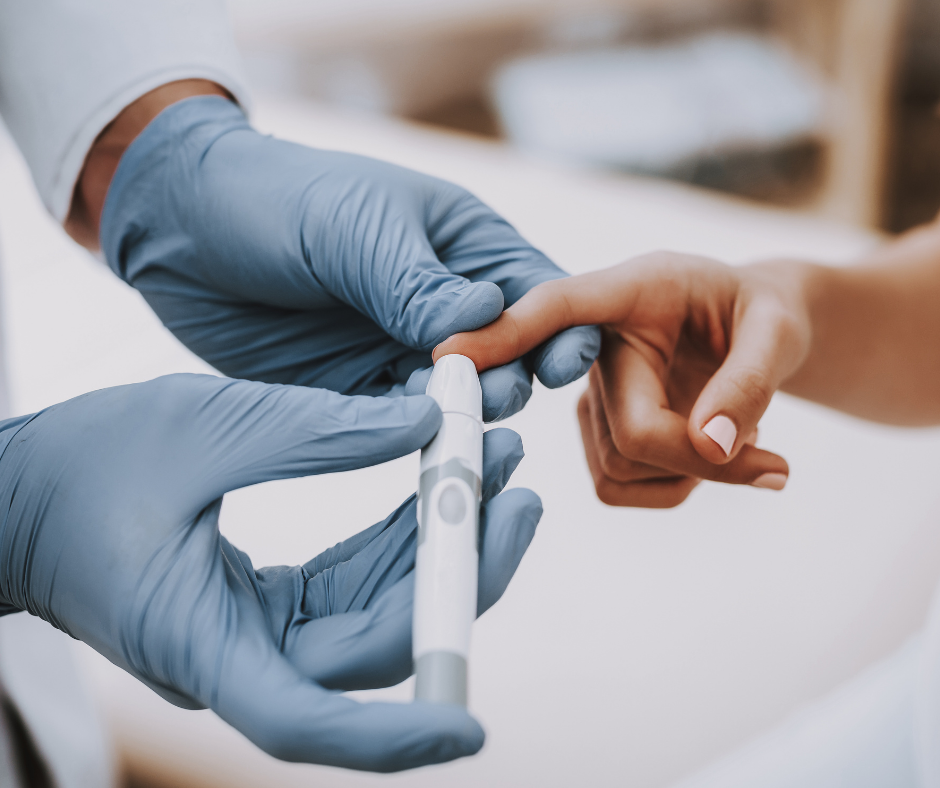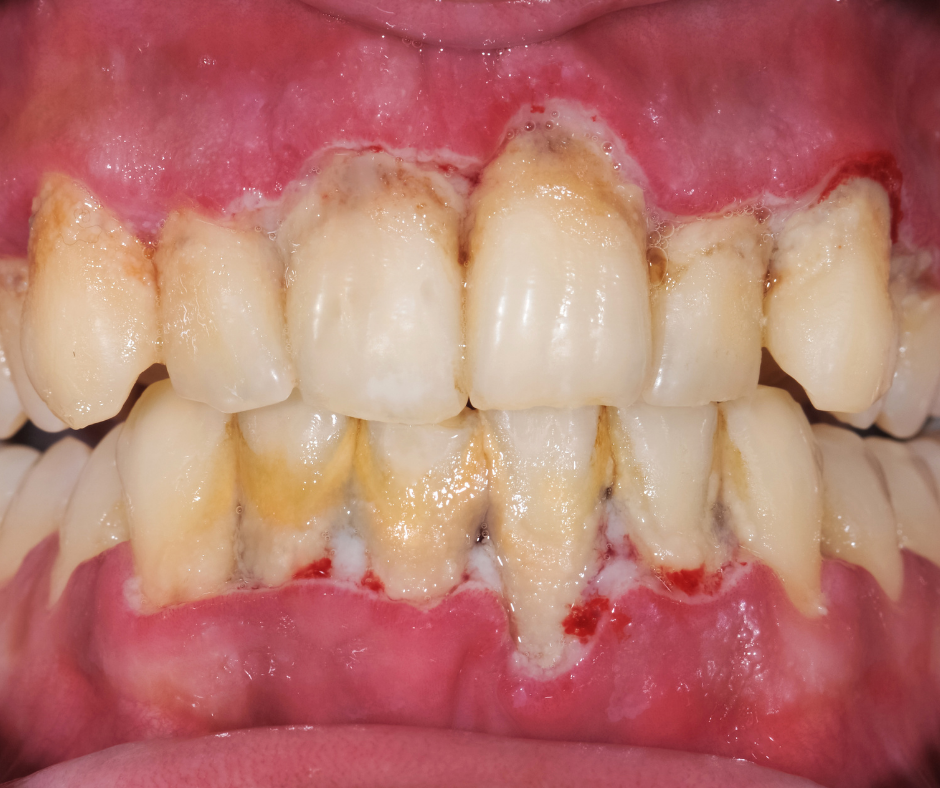Periodontal disease impacts nearly 50% of adults in the US over the age of 30. That percentage jumps to 70% in adults 65 and older. Looking at these numbers, it’s obvious that periodontal disease, ranging from slight to severe, is very prevalent in our society. So, what are some of the factors that increase our risk for developing periodontal disease and what risks can we mitigate? We will be looking at some of the most common causes throughout this post.. There are many risk factors that impact whether or not someone will develop periodontal disease over their lifetime.

Tobacco Use
The number one risk factor for periodontal disease is tobacco use of any kind. Smokers specifically are twice as likely as non-smokers to be impacted. Your overall immune system weakens with tobacco use making it harder for your body to fight the infection of gum disease. If you undergo gum therapy and continue to smoke your gums may not heal as well.
Diabetes
The correlation between diabetes and periodontal disease, you can take an in-depth look at in this post ( WHIT ADD LINK!). To break it down simply, uncontrolled blood sugar can increase the severity of periodontal disease AND active periodontal disease makes it more difficult to control blood sugar. The link here goes both ways and is very much involved in the body’s overall inflammatory response.

Family History/Heredity
At its core periodontal disease is caused by bacteria and we all have different kinds of bacteria in the oral cavity. If you have family members who have lost teeth due to periodontal disease you may be more vulnerable based on your genetics. Someone with more disease causing bacteria will be more at risk. Other people may have a different salivary chemistry that causes more tartar buildup. Still others may have a thinner gum tissue that is less resistant to disease. All of these are inherent risk factors, meaning they aren’t something we can change to decrease our risk.
Poor Oral Health
As stated previously, periodontal disease is caused by bacteria and if you are not practicing good oral health habits and seeing your dentist regularly, it may not take long for periodontal disease to develop. The goal is to routinely disrupt the environment of the bacteria. This is achieved by mechanically removing plaque with brushing and flossing AND killing bacteria with a mouthrinse. Everyone will eventually build up tartar though, which cannot be removed with those methods, that’s why it’s imperative to see your hygienist regularly to disrupt this other bacteria safe haven. With all this disruption it is much more difficult for bacteria to make a sound home and for the disease to develop and cause bone loss.

Other risk factors for periodontal disease include but are not limited to:
- Stress
- Age
- Poor Nutrition/Obesity
- Osteoporosis
- Autoimmune Diseases
- Clenching/Grinding Teeth
- Medications
References
American Academy of Periodontology
https://www.perio.org/consumer/gum-disease-risk-factors
